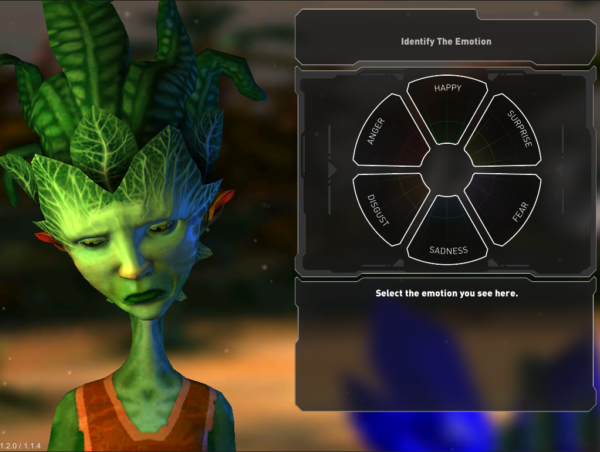A space-exploring robot crashes on a distant planet. In order to gather the pieces of its damaged space ship, it needs to build emotional rapport with the local alien inhabitants. The aliens speak a different language but their facial expressions are remarkably human-like.
This fantastical scenario is the premise of a video game developed for middle schoolers by researchers from the Center for Healthy Minds to study whether video games can boost kids’ empathy, and to understand how learning such skills can change neural connections in the brain.
Recent results published in npj Science of Learning (a Nature publication) reveal for the first time that, in as few as two weeks, kids who played a video game designed to train empathy showed greater connectivity in brain networks related to empathy and perspective taking. Some also showed altered neural networks commonly linked to emotion regulation, a crucial skill that kids in this age group are beginning to develop, the study authors say.












